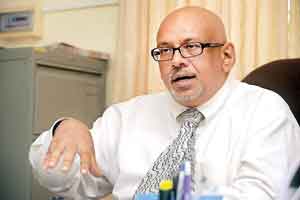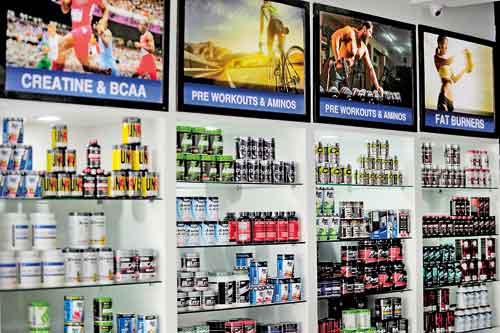Sports drug business thrives in the absence of proper controls

There should be a proper plan to monitor the movements says SLADA Chief, Dr. Jayawickreme
Sri Lanka’s sports medicine authority is still in a quandary with regard to measures aimed at regulating Performance Enhancing Drugs.
According to Dr Seevali Jayawickreme, Consultant Physician of Sports and Exercise Medicine, the authorities still have not brought any proper measures to regulate the sale of performance enhancing drugs.
It was said that, as a result, there is a high instance of young athletes being subjected to serious ailments.
Athlete Pradeep Ruwan Kumara, a 400-metre runner, who was banned by the Sri Lanka Anti Doping Agency (SLADA) for four years in April, made a shocking revelation. He claimed more than a dozen athletes had taken Performance Enhancing Drugs. Kumara was tested positive to ‘19-Norandrosterone’ and was banned till March 31, 2021. He has appealed against the ban and the matter is still pending.
Even prior to this, there have been high profile athletes whose careers were shrouded with doping allegations.
It is said the athletes in question had taken performance enhancing drugs at a location in Nugegoda. The Sunday Times learns the Police are investigating the allegations.

Performance enhancing substance products are freely available in the open market - Pix by Amila Gamage
Dr. Jayawickreme explaining the harmful effects of these PEDs said: “Nandroline (Decadurobolin) is an anabolic steroid used to resuscitate a cancer patient who is very bad or badly anaemic. Nandrolone allows you to work more and more and burn your body fat, so that, you can build up your muscle. That is what is needed for a person who sprints. Short burst sprinters, weight lifters have been using these type of drugs.”
“The bad effects of Nandroline are: It virtually destroys your whole body. For males, you will lose your hair, develop pimples, develop breasts and ultimately end up becoming impotent. It can also affect the heart and liver of both sexes.”
However, the Health Ministry’s Food Unit says it does have a system to check the outlets which sell performance enhancing drugs. Manjula Jayaweera, an official of the Unit, told the Sunday Times, “Wherever these outlets are we monitor them through our health inspectors. We go to all such outlets and make periodic checks and, if we find any substance not up to our stipulated standards, they are taken off the shelves. At the same time, they are also screened while being cleared at the port. However, there could be instances when some of the stuff comes into the country through different routes. Therefore, we try to nab them while on the shelf.”
A sports official said that for any mechanism to be effective, the Health Ministry’s Food Unit and the Sports Medicine which comes under the Sports Ministry should work in coordination. Is the Foods Unit aware of the World Anti Doping Agency (WADA) regulations and its periodic updates?


